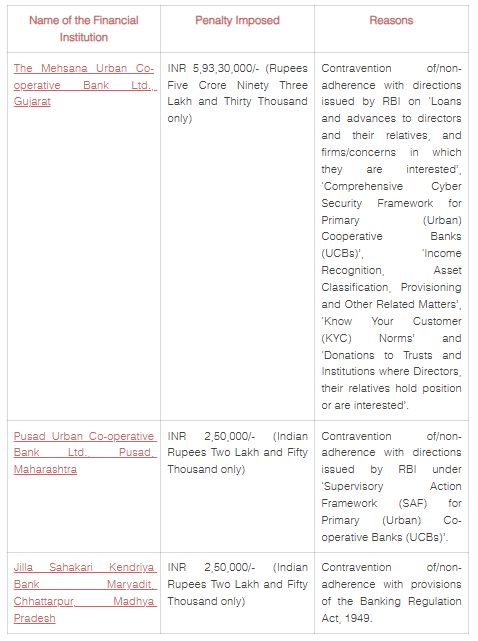1. Regulatory Updates
1.1. India
1.1.1. RBI revises guidelines on use of credit ratings for Basel III Capital Regulations
Reserve Bank of India ("RBI"), vide a recent circular dated July 10, 2024, revises guidelines on the use of credit ratings for capital adequacy under Basel III regulations. It allows banks to utilise ratings from Brickwork Ratings India Private Limited for loans up to INR 250 crore (Indian Rupees Two Hundred Fifty Crore only) and mandates rating surveillance for existing facilities until their next renewal, among other provisions. This update modifies previous restrictions, permitting continued use of Brickwork Ratings subject to specified conditions. RBI
1.1.2. RBI expands scope of remittances to IFSCs under LRS
RBI has expanded the scope of remittances under the Liberalised Remittance Scheme ("LRS") to International Financial Services Centres ("IFSCs"). Previously limited to investments in IFSC securities and education fees, the circular now permits remittances for availing financial services and products within IFSCs as per the IFSC Authority Act, 2019. Additionally, residents can conduct current or capital account transactions in foreign jurisdictions (excluding IFSCs) through Foreign Currency Accounts (FCA) held in IFSCs. RBI
1.1.3. RBI cancels the registration of Polytex India Ltd.
RBI has cancelled the Certificate of Registration ("CoR") issued to Polytex India Ltd., a Non-Banking Financial Company ("NBFC"), under Section 45-IA (6) of the RBI Act, 1934, due to violations of RBI guidelines. The NBFC outsourced critical functions such as client sourcing, KYC verification, credit appraisal, loan disbursal, recovery processes, and customer complaint resolution to its service provider, Zaitech Technologies Private Limited. Additionally, RBI found that the NBFC received fixed fees from Zaitech Technologies while the latter earned interest on loans, occasionally at exorbitant rates in violation of RBI's Fair Practice Code ("FPC") Guidelines. RBI
1.1.4. RBI cancels the registration of Star Finserv India Ltd.
RBI has cancelled the CoR issued to Star Finserv India Limited, an NBFC, under Section 45-IA (6) of the RBI Act, 1934, due to violation of RBI guidelines. The NBFC outsourced critical functions such as credit appraisal, loan sanctioning, and KYC verification to Progcap, operated by Desiderata Impact Ventures Private Limited, violating RBI's code of conduct for outsourcing financial services. Additionally, the company failed to ensure data confidentiality and security of customer information by granting unrestricted access to customer data to the service provider. Furthermore, the NBFC did not comply with RBI's FPC Guidelines by neglecting to provide customers with loan agreements and sanction letters in vernacular languages. RBI
1.1.5. Monetary Penalties
RBI imposes monetary penalties on the following financial institutions:

1.2. Bangladesh
1.2.1. Bangladesh Bank introduces new loan exit policy
Bangladesh Bank has launched a new exit policy allowing borrowers to close defaulted loan accounts within three years by paying just 10% (ten percent) as a down payment without any interest. This move aims to address the country's rising bad loans, which reached a record high of BDT 182,000 crore (Bangladeshi Taka One Hundred Eighty-Two Thousand Crore only) by March 2024. The policy excludes loans due to forgery or from wilful defaulters. Borrowers must repay within two years, extendable by one more year. Dhaka Tribune
1.2.2. Bangladesh Bank introduces new External Auditor Rules for scheduled banks
Bangladesh Bank introduced the "Bank Company External Auditor Rules 2024," marking the first comprehensive framework for the selection and conduct of external audits in scheduled banks. Effective from the 2025–26 audit year for banks with a financial year starting in July, these rules mandate that external auditors must audit at least 80% (eighty percent) of a bank's total risk-based assets, focusing on branches with the highest risk. The rules aim to enhance transparency and governance by ensuring thorough financial audits and maintaining audit quality. The Daily Star
1.3. Vietnam
1.3.1. Vietnam issues new decree outlining administrative penalties for price management violations
Vietnam has issued Decree 87/2024/ND-CP to strengthen price management and enforcement, effective July 12, 2024. The decree sets maximum fines for individuals and organizations violating price regulations at VND150 million (USD 5,900) and VND300 million (USD 11,800), respectively. Fines for selling goods or services at incorrect prices or outside state-determined ranges range from VND10-20 million (USD 393-786). For failing to declare prices correctly, fines range from VND3-5 million (USD 118-197). Additionally, penalties for not declaring prices for specific goods or services range from VND10-25 million (USD 393-984), depending on the number of items. Price display violations incur fines from VND500,000-1 million (USD 19.7-39.3), while selling above the displayed price during state price stabilization incurs fines of VND20-30 million (USD 786-1,180). Remedial measures may also be applied depending on the severity of violations. Saigon Giai Phong News
2. Trends
2.1. RBI likely to grant SRO recognition to Fintech Convergence Council
The Fintech Convergence Council (FCC), which represents fintech and digital lending firms under the Internet and Mobile Association of India (IAMAI), is set to obtain Self-Regulatory Organisation ("SRO") recognition from the RBI. This aligns with the RBI's initiative to establish SROs to oversee and regulate the fintech sector, mainly digital and peer-to-peer lending. Additionally, the Fintech Association for Consumer Empowerment (FACE) plans to apply for SRO recognition. This effort aims to standardise practices and increase transparency amid the sector's rapid growth, as fintech reported a 49% (forty-nine percent) increase in loan disbursements, reaching INR 1.5 lakh crore in the 2024 financial year. Money Control
2.2. Amazon Pay India calls for MDR implementation on UPI transactions
Amazon Pay India has advocated for the implementation of a merchant discount rate ("MDR") regime for Unified Payments Interface ("UPI") transactions. They argue that smaller players should receive fair compensation for their contributions to the payment ecosystem. UPI transactions are exempt from MDR, unlike credit card transactions, which incur MDR charges. The need for a balanced MDR framework to ensure equitable benefits without impeding digital payment adoption has also been emphasised. This call aligns with previous industry appeals for MDR support, citing the substantial infrastructure costs involved in sustaining UPI payments. Inc 42
3. Sector Overview
3.1. 69 percent of Indian merchants embrace digital payments, as per Amazon Pay Report
A new report by Amazon Pay and Kearney India titled "How Urban India Pays" reveals that 69% (sixty-nine percent) of Indian merchants now prefer digital payments, marking a significant shift in consumer behaviour. Street vendors utilise digital transactions for 46% (forty-six percent) of their sales, while larger merchants see this figure rise to 60% (sixty percent). The report highlights that 63% (sixty-three percent) of merchants accept digital payments for transactions under INR 1,000 (Indian Rupees One Thousand only) to retain a competitive edge. Despite challenges like fraud and connectivity issues, UPI emerges as the favoured payment method at 53% (fifty-three percent), followed by digital wallets and cards. Inc 42
3.2. RBI flags concerns over disclosure quality by NBFCs
During a recent conference on July 9, 2024, with statutory auditors
and chief financial officers of commercial banks and financial
institutions across India, the RBI Deputy Governor expressed
concerns about the quality of disclosures made by some NBFCs. He
urged the auditing community to ensure that NBFCs provide
meaningful qualitative information to depositors and other
stakeholders. The Deputy Governor noted that many NBFCs'
disclosures were merely repetitions of the text from respective
accounting standards, lacking specific insights. Important details
such as assumptions and methods used for measuring Expected Credit
Loss (ECL), shared credit risk characteristics for assessing
expected loss collectively, and qualitative criteria for
determining a significant increase in credit risk (SICR) were not
adequately discussed. The Indian Express
3.3. NBFCs face rising funding costs amid tightening bank lending
NBFCs are anticipated to encounter a 60-100 basis points increase in their cost of funds ("CoF") for the first quarter of the financial year. This surge is driven by banks scaling back on lending to NBFCs due to increased risk perceptions and regulatory pressures. As a result, NBFCs are diversifying their funding sources, turning to more expensive alternatives like capital markets. Despite these challenges, experts predict stable asset quality for NBFCs in the upcoming quarter, although net interest margins (NIM) are likely to face pressure due to higher CoF and shifts in loan portfolios. Money Control
4. Business Updates
4.1. Jio Financial Services receives RBI approval to become a Core Investment Company
RBI has granted approval for Jio Financial Services to transition from an NBFC to a Core Investment Company ("CIC"). This shift will allow Jio Financial Services to better separate the financials and operations of its subsidiaries, enhancing value discovery for investors. Unlike typical NBFCs, CICs primarily invest their assets in the equity shares, preference shares, or debt instruments of their group companies. As a CIC, Jio Financial Services will enjoy increased operational flexibility, focusing solely on core investment activities and avoiding other financial services. The Economic Times
4.2. RBI approves sale of upto 51% stake in Yes Bank, as per reports
RBI has approved the sale of up to 51% (fifty-one percent) stake in Yes Bank, potentially valuing India's sixth-largest private bank by assets at around USD 10 billion, making it the largest acquisition in the country's banking sector, as per reports. Although RBI officials have verbally agreed to the proposal, formal written approval is pending as the central bank assesses the suitability of potential bidders. This decision reflects the RBI's recognition of Yes Bank's unique situation, including its shareholder composition, loan portfolio, and liquidity needs. With assets exceeding Rs 4 trillion, State Bank of India and other lenders, holding a collective 33.74% (thirty-three point seven four percent) stake in Yes Bank, now have a viable exit option due to the RBI's clearance. Money Control
The content of this article is intended to provide a general guide to the subject matter. Specialist advice should be sought about your specific circumstances.


